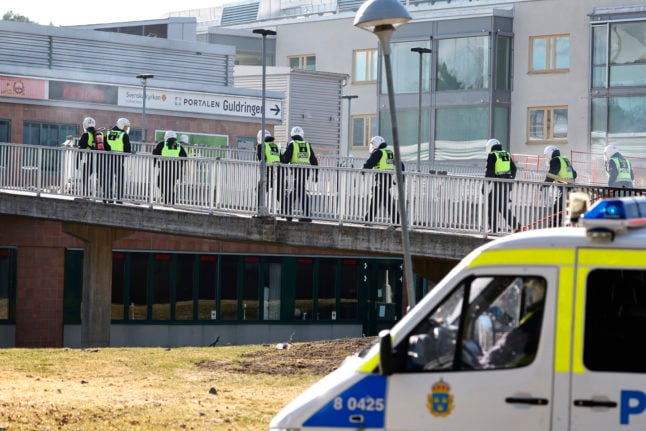“The ministry called in the US and French ambassadors to deliver a strong protest against their visit to Hamas without prior authoritisation… which constitutes a flagrant interference in Syria’s domestic affairs,” the official SANA news agency said.
“Their visit proves that is support and encouragement from abroad for destabilising the country at a time when a national dialogue has just been launched aimed at building Syria’s future,” the news agency said.
“This visit violates the Vienna Convention on Diplomatic Relations which stipulates non-interference in host countries’ domestic affairs.”
Both US envoy Robert Ford and French ambassador Eric Chevallier visited Hama on Thursday amid repeated large demonstrations in the city against the rule of President Bashar al-Assad.
Damascus reacted furiously to the visit accusing the US ambassador of seeking to undermine the stability of Syria.
“The US ambassador met with saboteurs in Hama… who erected checkpoints, cut traffic and prevented citizens from going to work,” an interior ministry statement said.
The foreign ministry called Ford’s presence in Hama “obvious proof of the implication of the United States in the ongoing events, and of their attempts to increase (tensions), which damage Syria’s security and stability.”
US State Department spokeswoman Victoria Nuland said she was “dismayed” by such criticism and stressed that Syrian authorities knew of the visit in advance.
Embassy press attache JJ Harder insisted Ford “certainly did not incite anyone to anything”.
“He met with average Syrian citizens and received a warm welcome,” Harder said on Friday.
Ford “wanted to see with his own eyes what was happening on the ground,” as “the lack of uninhibited access for international media makes this even more important.”
Last week, Washington summoned the Syrian ambassador after reports that embassy staff had filmed US protests against the crackdown in Syria.
Ambassador Imad Mustapha was called in to meet with top State Department officials “to express a number of our concerns with the reported actions of certain Syrian embassy staff in the United States,” the State Department said on Friday.
“We received reports that Syrian mission personnel under ambassador Mustapha’s authority have been conducting video and photographic surveillance of people participating in peaceful demonstrations in the United States,” it added.
On Sunday, Syria opened a “national dialogue” that it hailed as a step towards multi-party democracy after five decades of Baath party rule but an opposition boycott and mass protests against it, including in Hama, undermined its credibility.


 Please whitelist us to continue reading.
Please whitelist us to continue reading.
Member comments